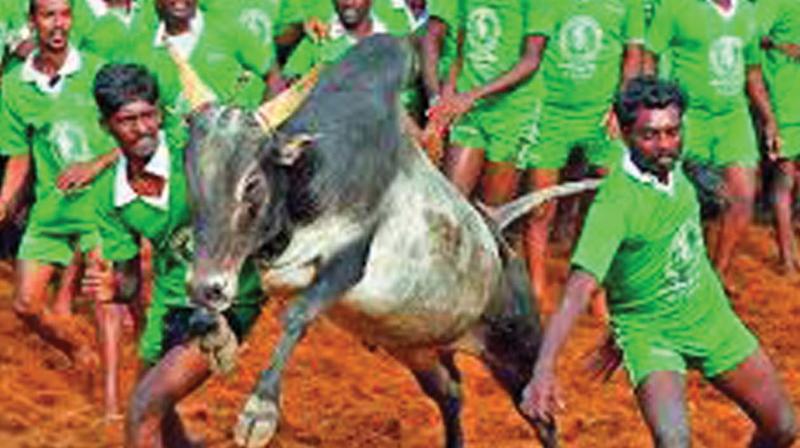Jallikattu bulls likened to treatment of slaves
The bench after an enquiry with the registry' told the counsel that the review petition is under defect.

New Delhi: Jallikattu is impermissible in Tamil Nadu as 'bull’ cannot be used as a tool for entertainment for human beings by inflicting cruelty, the Supreme Court observed on Wednesday.
A Bench of Justices Dipak Misra and Rohinton Nariman made this oral observation during the hearing of petitions filed by animal rights activists, Compassion Unlimited Plus Action, the Animal Welfare Board and others challenging the Centre’s notification.
The January 7, 2016 notification permitted Jallikattu and bullock cart races by excluding ‘bull’ in the list of ‘performing animals’ under the Prevention of Cruelty to Animals Act. The animals mentioned the list cannot be used for any performance or entertainment and by removing ‘bull’, from this list the Centre indirectly allowed Jallikattu.
At the outset senior counsel Shekar Naphade, appearing for Tamil Nadu submitted that the petition seeking review of the 2014 judgment banning jallikatu should be heard first before these petitions are taken up. The bench after an enquiry with the ‘registry’ told the counsel that the review petition is under defect.
Additional solicitor general P.S. Narasimha, appearing for the Centre, justified the notification and said bull is not a performing animal and jallikattu is not a performance but a sport to test the valour and strength of the participants.
Apart from being a part of Tamil culture and heritage jallikattu is also integral to the religious beliefs and sentiments of the several village communities to mark harvest festival. He said sufficient guidelines had been formulated and care had been taken to ensure that bulls are not subjected to any cruelty and no injury shall be inflicted on the bulls.
Counsel Naphade asked the court “when marathon race is permitted, why can’t bulls race be allowed? Are the so-called rights of animals higher than the rights of human beings?”
Justice Misra replied “in a marathon race, you participate on your own will, but in jallikattu bulls are forced to participate against their will as if slaves were treated in 16th century. That is why we say jallikattu is impermissible in law.”
The Bench, however, agreed to hear Tamil Nadu’s review petition first before proceeding further in the present batch of petitions and directed that the matter be listed for further hearing on November 16.

